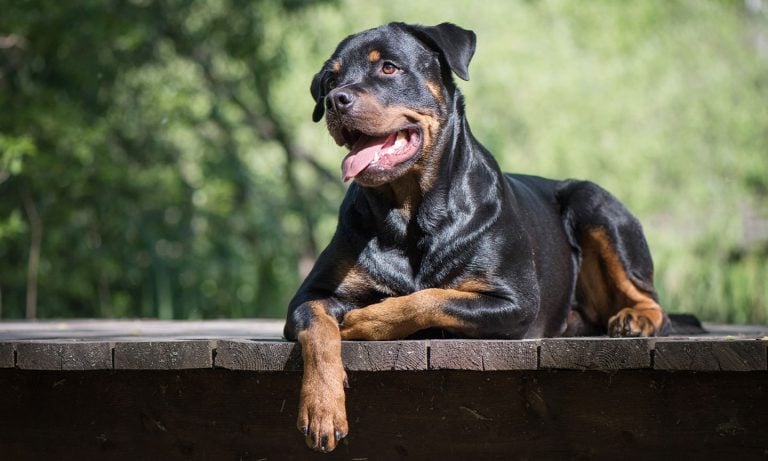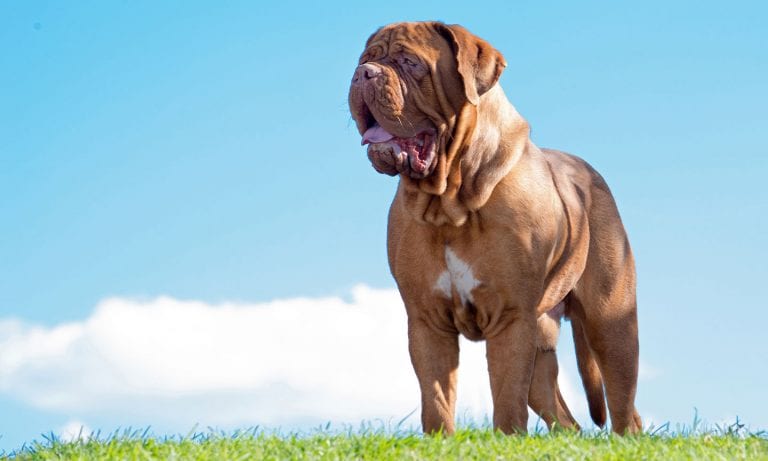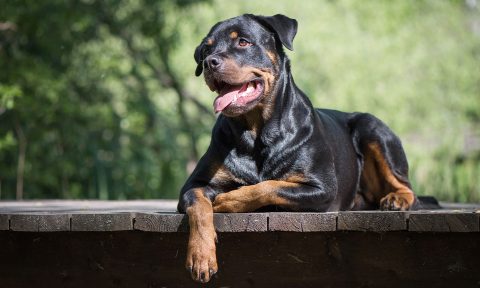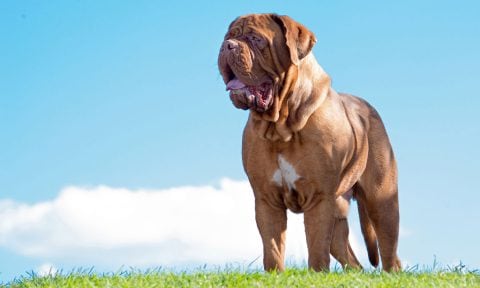Rottweiler vs Dogue de Bordeaux

Breed Snapshot
Best For
A popular working breed, Rottweilers do best with experienced pet parents who can provide early training and socialization. These robust, large-sized dogs thrive in homes with active individuals or families, appreciating both mental and physical...
A popular working breed, Rottweilers do best with experienced pet parents who can provide early training and socialization. These robust, large-sized dogs thrive in homes with active individuals or families, appreciating both mental and physical challenges.
Rottweiler Temperament
Rottweilers are powerful and intelligent dogs who benefit from early training and socialization. They are easy to train and eager to please their families, but are also strong-willed and may seem aloof to the outside world. Originally descending from the mastiffs of the Roman legions, Rottweilers have been valuable...
Rottweilers are powerful and intelligent dogs who benefit from early training and socialization. They are easy to train and eager to please their families, but are also strong-willed and may seem aloof to the outside world.
Originally descending from the mastiffs of the Roman legions, Rottweilers have been valuable companion animals and working dogs for centuries. This is just as true today as it was years ago—families that are willing to put in the time to train and socialize their Rottweiler will be rewarded with an intensely loyal and energetic dog.
In fact, Rottweilers are much more emotionally needy than many people assume. This dog has a fearsome reputation, but in reality, Rottweilers are obsessed with their people and want to be around them all the time. Rottweilers who are isolated from people or kept alone may begin to exhibit unwanted behaviors when they do finally get access to people.
Rottweilers were originally bred to be protectors. Combined with their great strength, this makes it especially important that Rottweilers are properly trained and socialized. Once socialized, Rottweilers can easily get along with other dogs and young children. Like any dog, Rottweilers who are poorly trained, subjected to harsh discipline, or isolated are more likely to exhibit unwanted fear-based behaviors, including biting and aggression.
One especially interesting features of these dogs is their vocalization. Rottweilers aren’t known for excessive barking (although of course they can and will bark), but they do have a deep rumble that sounds almost like a growl. Some pet parents think of this rumbling sound as “talking.” This “Rottie rumbling” is almost like the purring of a giant cat and often means your Rottweiler is happy and content, particularly during belly rubs.
Rottweiler Traits

Breed Snapshot
Best For
Don't be fooled by the Dogue de Bordeaux's large and in-charge appearance—these are powerful yet gentle giants. Also known as French Mastiffs, they need early socialization and consistent training to live their best lives,...
Don't be fooled by the Dogue de Bordeaux's large and in-charge appearance—these are powerful yet gentle giants. Also known as French Mastiffs, they need early socialization and consistent training to live their best lives, making them ideal companions for experienced pet parents.
Dogue de Bordeaux Temperament
Tom Hanks may have been upstaged by his co-star in the classic 80s movie “Turner & Hooch,” but IRL Hooch would be content to let you steal the show. The Dogue de Bordeaux (also known as the French Mastiff, and the breed that played the lovable aforementioned Hooch) is a c...
Tom Hanks may have been upstaged by his co-star in the classic 80s movie “Turner & Hooch,” but IRL Hooch would be content to let you steal the show. The Dogue de Bordeaux (also known as the French Mastiff, and the breed that played the lovable aforementioned Hooch) is a calm and mild-mannered pup who is more interested in being your devoted pal than being on the A-list.
While generally gentle and laid-back, Dogue de Bordeaux can be strong-willed and watchful. (They were used to guard French estates back in the day.) Proper socialization and training at an early age are necessary to make sure your puppy doesn’t become overly fearful or reactive toward people they don’t know. Working with a certified trainer can help ensure your puppy grows up to be friendly and confident.
The Dogue de Bordeaux breed can get along with other dogs, cats and kids—if trained properly and/or they grow up together. Children should be taught how to interact gently and respectfully with dogs, too.
The Dogue de Bordeaux can jump into action at a moment’s notice, and are surprisingly speedy for their size, but they are happiest lounging around with their family. They thrive on interacting with the people they love the most, though their snoring and constant drooling certainly won’t win them any awards in the Quietest Sleeper or Tidiest Dog categories.




